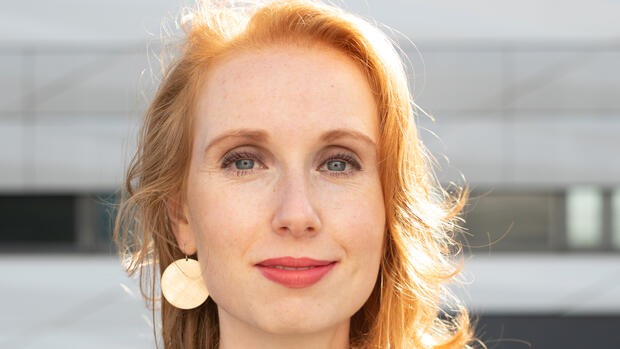Berlin Despite difficult financing conditions and persistent economic weakness, more companies are being founded again. In the first half of the year, 1293 start-ups were created, 16 percent more than in the previous six months. This is the result of data from the industry service Startupdetector in cooperation with the startup association.
The trend is clearly positive: According to Startupdetector, 689 young companies were founded from April to June. That’s the highest number of restarts in the previous three quarters. The numbers are far from reaching the boom of the Corona period, when a lot was founded. However, the bottom of the past year seems to have been passed for the time being.
A particularly large number of start-ups were founded in June. Feiyu Xu and Vanessa Cann also competed that month. Together with other comrades-in-arms, the former AI boss of SAP and the head of the AI Federal Association founded the start-up Nyonic. With this they want to build a language model for artificial intelligence for European industrial companies. You are building on a trend topic that, in contrast to other topics, is popular with investors.
Times are still difficult for start-ups. According to the Pitchbook data service, only 1.5 billion euros were invested in young companies in Germany in the first three months. In 2022 it was a total of 14.5 billion euros.
Investors are more selective and prefer to put their money in less risky business models. This in turn makes it difficult for start-ups because, due to the lack of regular sales, they finance themselves primarily through the venture capital available to them.
>> Read more here: SAP loses AI boss – Feiyu Xu founds start-up
Many founders try to adapt to this. “The successful start-ups are currently adapting their business models to the requirements of the market. They try to achieve reliable sales as early as possible,” said Carsten Rudolph from the Bavarian start-up network Bay-Start-up. This could result in very well positioned companies.
The young Hamburg start-up 21Done also generated revenue from the start. “The last round of financing was still not as high as hoped,” said founder Thomas Suwelack, who is building the New Work platform alongside his teaching at Hamburg’s Brand University.
Most companies are founded in Berlin and Hamburg
Most founding activities this year took place in the two city states of Berlin and Hamburg. After the sharp slump in 2022, 262 start-ups were founded in the capital from January to June, 40 percent more than in the same period last year.
Things went up similarly in Hamburg, where 90 new companies were founded. More start-ups per capita were founded in Berlin and Hamburg than in the other federal states. In absolute terms, 27 percent of all start-ups were created here in the first half of the year. In Munich, on the other hand, development stagnated in the first half of the year.
“As in the Corona period, certain industries are proving to be crisis-proof or even crisis winners,” said Startupdetector co-founder Felix Engelmann. This year, the topic of artificial intelligence is definitely one of them. In addition to Nyonic, many other start-ups have emerged in this area.
According to the AI initiative AppliedAI, 508 AI-specific start-ups are currently active in Germany, 67 percent more than in the previous year. In addition to the perennial software, there are comparatively many new start-ups in green technologies. The entrepreneurs Nils Brüggemann and Omar Khalaf also rely on this.
>> Read more here: Bucking the trend – climate start-ups collect record sums
The two Berliners by choice recently launched Alganize. The start-up wants to remediate contaminated soil with the help of metabolic products from chlorella microalgae. “Many investors shrug off when you explain to them that you want to set up a business with microalgae as a fertilizer substitute. But some people find that very exciting,” said Brüggemann, whose start-up has so far been supported by a grant and is now about to receive its first cash injection from an investor.
With equity against the financing crisis
Due to the difficult financing conditions for start-ups as a result of the turnaround in interest rates, more and more young companies are currently trying to get by without any external capital and finance themselves entirely through equity and initial sales.
These start-ups, in turn, also attract the interest of investors in the medium term. “We are currently looking at some companies that have only been financed through bootstrapping to date,” said Peter Singlehurst, partner at British investor Baillie Gifford. They often have better cost discipline than companies that also have venture capital from the start.
Despite the challenges for start-ups, the managing director of the start-up association, Christoph Stresing, is confident that the recent momentum will not fizzle out any time soon. “Even if our start-up ecosystem is not yet at the vigorous level of 2021, we are optimistic,” said Stresing.
The start-ups across all sectors showed how broadly young companies bring innovations into the national economy.
More: These German startups could become unicorns
